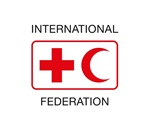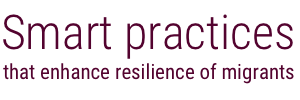Migrant populations are provided microfinance products tailored to different types of financial needs.
Since 1992, the UNRWA Microfinance Department has provided access to credit and related financial services to households, entrepreneurs and small-business owners in the Gaza Strip, the West Bank, Syria and Jordan. Financial credit helps to create and sustain jobs, reduce poverty and empower migrants. However, many migrants in camps and host communities are unable to secure credit for more expensive individual or family purchases or for business ventures. UNRWA therefore provides the necessary credit coordinated through 25 branches across the region.
Products and services are particularly targeted towards poor urban areas where vulnerable migrants often live. Products and services provided include: youth start-up loans, small-scale enterprise loans, collective group loans, household credits for women, micro-enterprise credits, consumer product loans, and housing loans. The programme also runs a training programme for small-business owners in Gaza, offering them customized training in topics such as book-keeping, taxation, computing and e-commerce. Since 1995, 12,600 entrepreneurs have participated in 581 courses. The majority of clients of the programme operate small, often informal businesses at the margins of the economy. They include fishermen, garage-owners, at-home seamstresses and vegetable stall-owners.
Between 1991 and 2015, the department extended 398,154 loans, giving clients access to a total of 440.41 million US dollars.
Design. [P1] Focuses on need of migrants to earn a livelihood by growing business ventures. [P3] Supports entrepreneurial aspirations of migrants;
Programme. [P9] Responds to displacement of migrants in the Middle East.
- Maintaining the double-bottom line, of cost recovery and achieving social performance targets. Political instability, including the regime of blockade and siege in the Gaza strip and the Syria crisis, have exacerbated difficulty.
- Developing micro credit expertise is critical to success.
- It is vital to clearly distinguish the difference between credit and grants.
- Products need to be highly adaptive to needs of the target population and local circumstances.
Smart practices
Smart practices report and database survey
About the report
People migrate in pursuit of a better life for themselves and their families. As described in the International Federation of Red Cross and Red Crescent Societies’ (IFRC) Policy on Migration, “migrants are persons who leave or flee their habitual residence to go to new places – usually abroad – to seek opportunities or safer and better prospects.
Read more
About the International Federation

